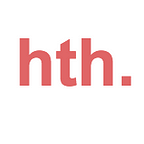Health Tech Hub Vol. 19 — Your Weekly Reads in Medicine and Health Tech
- Chatbot use in healthcare: Will chat bots stick around as a useful tool for streamlining information for patients in the future? After injuring my knee, I noticed more private clinics using chatbots to assist with symptom checks and scheduling. Although I was not fully satisfied with the suggested diagnosis on Buoy, I was impressed with the algorithmic questioning that the service uses. You can try out buoy health here.
2. Using CrossFit to address Primary Care Issues: If we truly want our patients to be healthy, maybe it’s appropriate to reallocate resources towards helping patients get better access to preventative care. CrossFit and other exercise programs can provide a healthy social environment that both educates patients about their health and potentially resolves patient’s chronic health problems without the need for medications.
3. NYU Becomes First School to Make Medical School Tuition Free for All Students — With the hypothesis that medical students are being pushed into higher paid specialties and dissuaded from important career pathways such as primary care and research, NYU looks to the ease the financial burden on its medical students by making tuition free for all of their students.
4. The Future Illiterate, an essay by Bryan Johnson — This could be the most important thing that I’ve read in a while. Bryan Johnson (Founder of the OF fund and former CEO of Braintree) discussed the growing problem of future illiteracy and it’s threat to humanity.
People are getting left behind and the resource-abundant institutions have created sophisticated engines for making themselves wealthier through technology — this will inevitably result in growing inequality.
How do we adapt to this changing future and what should everyone start thinking about? This is a great primer for the looming problem of future illiteracy.
5. Type-O blood for all! — There are four blood types: A, B, AB, and O depending on the antigens found on your blood cells. Most people can only receive blood from those with the same blood type, however, type-O blood can be used universally due to its lack of antigens. Researchers are finding ways to use enzymes to strip away antigens on other types of blood to convert them to Type-O blood that can be used for anybody.
6. The Big Banks and Medical Research — “It’s not a lack of science, it’s a lack of funding.” For years, the funding for medical research has depended on government entities and/or previous commercial success from legacy big pharma companies. However, it appears that the capital from large financial institutions have historically been untapped when it comes to funding medical research. Former finance executive Karen Petrou is now building a $1 billion fund aiming to cure blindness using a new model that pairs experts in research with private investors that are willing to take large loans from Wall Street. If successful, this could pave the way for new avenues of commercial success for smaller research groups aiming to tackle large medical problems.
Curated by Genesis Dayrit
